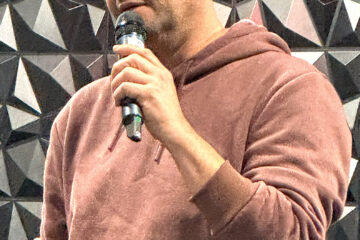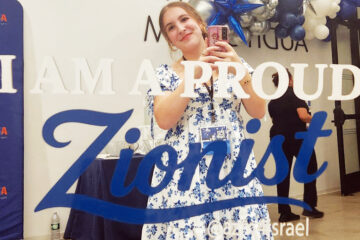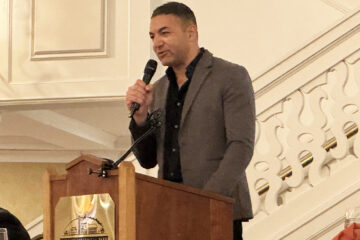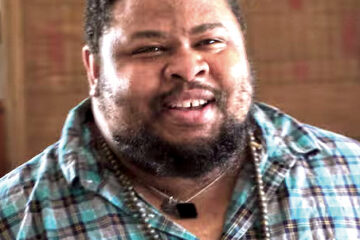Beth Abraham Synagogue’s Cantor Andrea Raizen retires
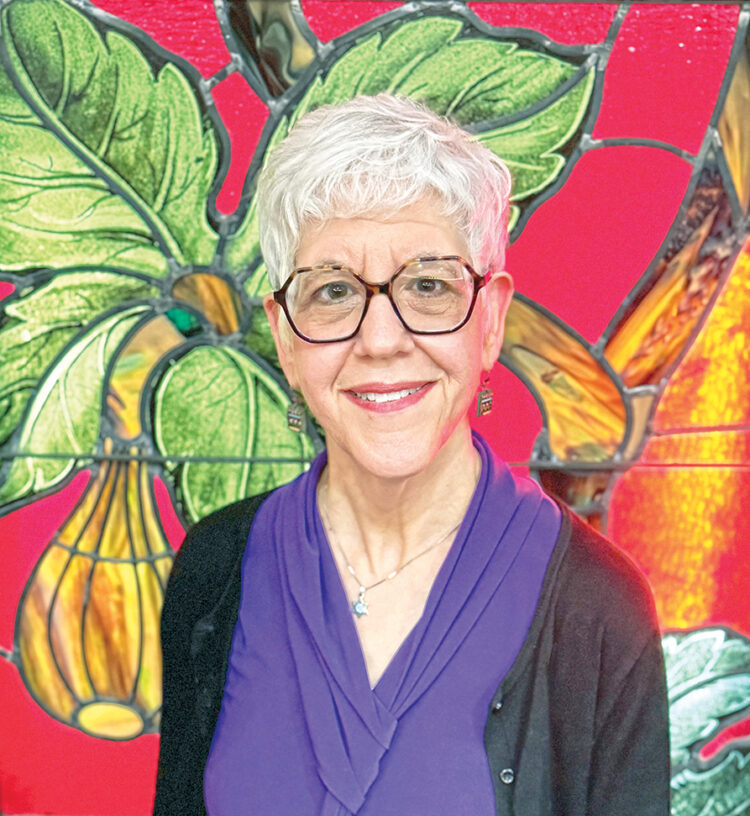
By Marshall Weiss, The Dayton Jewish Observer
Cantor Andrea Raizen’s retirement from Beth Abraham Synagogue at the end of July marks the first time in a generation that no Dayton area Jewish congregation will employ an invested cantor. And due to financial constraints, Beth Abraham plans to only employ one full-time clergy member — its rabbi — moving forward.
Since her arrival in 2007 at Dayton’s only Conservative Jewish congregation, the cantor — who grew up in Denver — has also served as its director of education and programming.
Beth Abraham will honor Raizen with the title of cantor emerita, a special event July 21, and the establishment of an endowment fund for Jewish education in her name.
She tells The Observer she’ll be available to tutor bar and bat mitzvah students with the synagogue after she retires. This interview has been edited for length and clarity.
I’ve noticed that the one constant over the 17 years you’ve been here has been change.
It all began with moving into this building in Oakwood from Salem Avenue. I’ve worked with four rabbis here.
The length of time you’ve been here, is that an unusual span of time for clergy these days with a congregation?
These days. I noticed that amongst my colleagues, when you look at the placement lists from Cantors Assembly, they’re staying three and five years and moving on. And I think, in some cases, with rabbis too. I think it’s the same in other professions as well, where you don’t take that job and you’re there for 30 years. My last longest stint was seven years.
Why did you choose to stay here all these years?
I found home. And I think I knew it, actually, before I arrived. Because it was the first time that I made the decision that I was going to buy a house before I started.
When I was offered the position, I said I think this is where I’m going to finish up my career, and I want to make an investment in the community as well, and I had never bought a home in my life.
I knew it would make me have to power through the tougher times. Because I knew that about myself, that if I ran into things that were frustrating and I didn’t have that investment in the community, it was easy to say, OK, I’m going.
But I knew from the first phone interview. There were several people on the other end. Everything just felt right. I hung up from that call, I called my mother and said, “I just had the best job interview I’ve ever had. I think this is where I’m going to end up.” And sure enough, all the pieces just fit together.
What are some of the innovations, new programs, new ideas you’ve brought to Beth Abraham?
Something I had been carrying with me from two congregations ago, they had what was called the Purim family reading, which was this booklet that had the story in it, but it worked in chants from the Megillah. My next congregation adopted it, and the same thing here. This year, we went back to that model again.
During the pandemic, it was Kabba-Locked-In Shabbat. It wasn’t that other places weren’t doing that. But we kept that way past people being quarantined in their houses. Everybody knew it’s Kabba-Locked-In time.
We’ve had Kabba-Latke Shabbat. Havdalanukah. It’s always been a willingness to go above and beyond what they have hired me to do. I’m in the kitchen making Chinese dinner, making 100 egg rolls every year (in December). Shavuot’s my dinner to do. That’s my gift to the synagogue. The Torah reading corps is still really strong. Many of those are my students.
The Zoom minyan (Monday through Thursday evenings) is healthy, alive and kicking. If you ask the people on that screen if we went back to in-person, would you be here, they will tell you they will not come.
They are there, and a few of the people on there are on because they did their 11 months (of mourning) and have stayed on for two more years after. They’re there all the time. We have out-of-towners on there. We have this international minyan.
We do it hybrid every once in a while, when we have a board meeting, we go up and do it in there, but I bring my laptop. We still don’t do a full minyan when it’s just Zoom. We keep out Borchu. We don’t do Hatzi Kaddish. The exception is we will do Mourner’s Kaddish. I think that’s been a comfort.
What parts of your job have you found the most rewarding? What brings you the most joy?
Being there with the bar and bat mitzvah kids when they finally go through that. Here, in a good year, we’ve had three or four kids become b’nai mitzvah. Sometimes we’d have a dry year and none at all.
Despite whatever the process was getting there, they always come through. I think that’s something I really do well. It was something I did even before I went to grad school to become an educator. Somebody pushed me: “You’ve got what it takes to teach bar and bat mitzvah to kids.” I did that when I had a whole different professional life.
And I feel like a proud parent. I sit there and I kvell. There are times when it’s amazing to me, especially the kids who have had to struggle, that I’ve gotten over the hump. That gives me great, great pleasure.
The other thing that I’m really proud of, more of a community thing, is the Dayton Jewish Chorale. It was my idea a few years before the launch with me, Courtney Cummings (Temple Israel), and Cantor Jenna Greenberg (formerly a Beth Abraham congregant). It’s from when the Federation offered innovation grants.
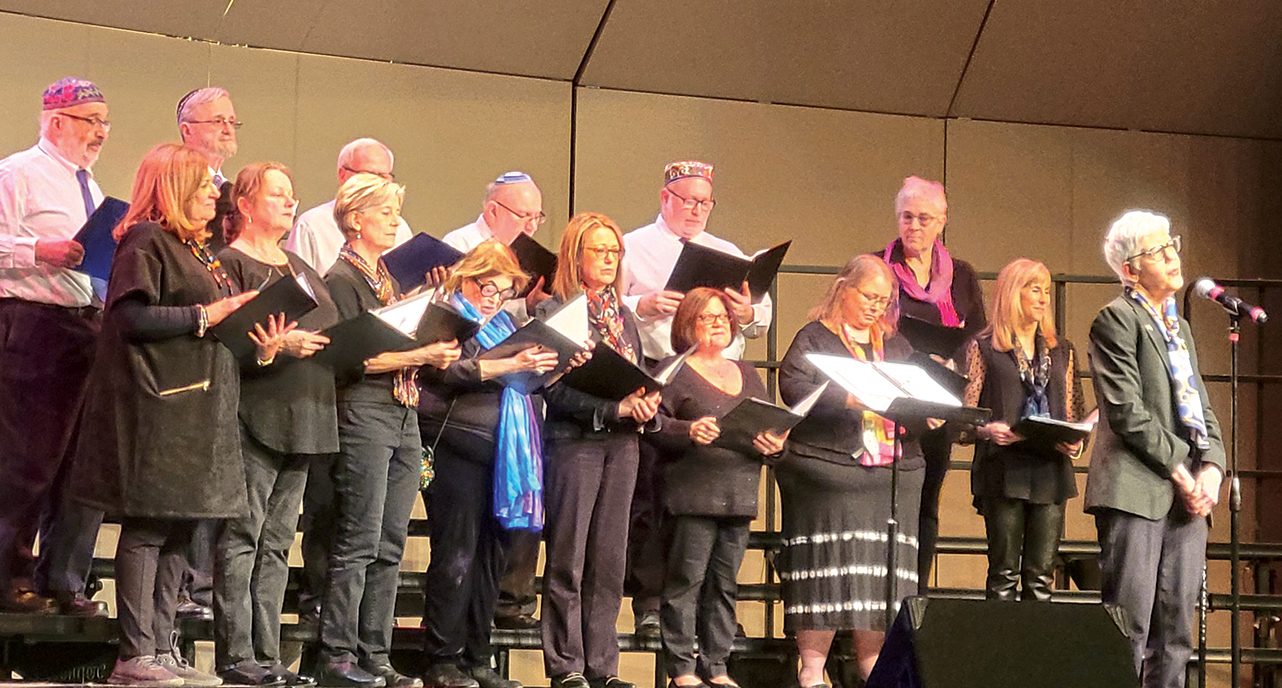
After Jenna got to town, it came together. It still exists, even though it’s not in the same way that it was when we were a full-time choir. It was an incredible community-building group. They’re still together, and they don’t want to give it up. They sang at the Jewish Cultural Festival.
And the chorale created the community Selichot service that’s been going on. So we’re going back to Beth Jacob this year for the Selichot service. Rabbi Agar has said, “Absolutely we’ll host this.”
What have been some of your biggest challenges over the years?
Covid truly was a turning point. Certainly, for educators and the quick pivot that had to be done. That we were able to do it not even knowing what the heck we were getting into.
We didn’t lose anybody from the school. And we then kept a whole school year after that. The 2021 school year, we kept entirely virtual. And we actually picked up students. I had students online that I never met until we finally came back in person.
I had to revamp: how long can a kid sit? We split them up, Sandy Sloane-Brenner still stayed on. But that was such a tiring year for me. And I thought, maybe this is telling me that it’s getting to be time. I don’t think that’s so unusual, because for a lot of teachers, that was about the time they were thinking, “I’m done.”
And it was everything else that went with Covid through the synagogue. Because everything we did, we tried to keep going with the virtual. But we, I think, succeeded. We didn’t even lose a Purim shpiel. We had an online Purim shpiel, which I thought was one of the funniest ones we had ever put on. But it wasn’t just that. It was the whole Purim program with it. And I sat and watched it one day and saw how happy everyone was. They’re performing on screen.
We had a Chanukah thing online. I did a Sisterhood Sukkah program. I was sitting in my sukkah. It was Sunset in the Sukkah coming to you live from Cantor Raizen’s sukkah and had them doing scavenger hunts in their houses. So, it took every ounce of my creativity. And with the change in rabbis, more was put on me, and I was exhausted.
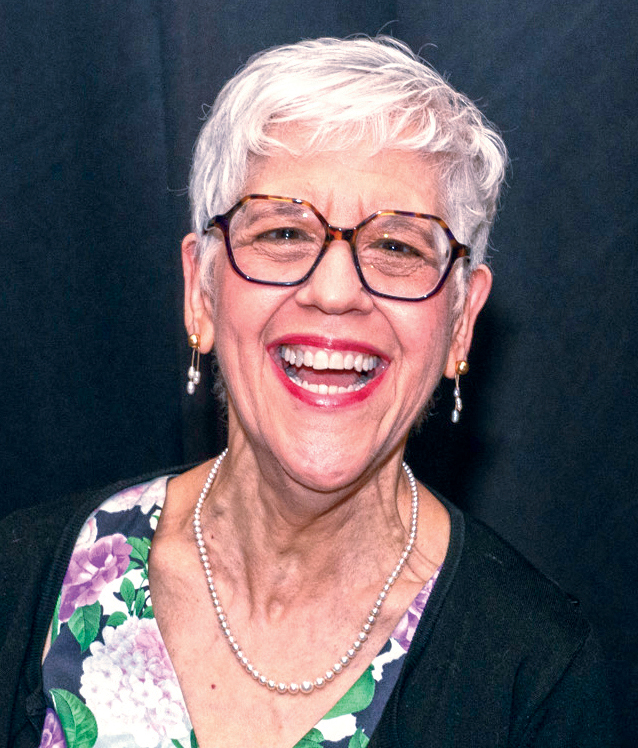
Do congregants approach the synagogue and Judaism differently than when you started here?
Yes and no. We were already on the older end of demographics when I got here. Now I look at the folks that come in and I’m as old or older than the “old people” are. The community that I interact the most with through services, that’s kind of the same, because of the ages that they’re in. And they’re at a comfort level with the type of service that I came into and was happy to facilitate, being professionally trained as a cantor. I can do it in the proper nusach (musical prayer motif) and they appreciate this.
We’ve just lost people like crazy. Going to the cemetery and seeing all your old friends. It hurts my heart so much how many dear friends I have lost. But it’s the reality.
It’s more about where American Judaism is right now. It’s been going on for a while. And I’ve said this for a long time: We are in that upheaval, that change that takes 10, 15 years to get through. Something different is going to come out on the other end. I have no idea what it’s going to be. I am not going to be a part of that. And it’s OK. I did my part. I was at the height of the family education programming wave.
What will you be up to now?
I’m staying in Dayton. What I want to do is nothing. I so desire to wake up and say, “I don’t have to do anything today.” This has been the kind of job that I could never turn off. I just want to clear my head to begin with, and just be able to do whatever I want to do.
I’m also the kind of person, I know I need structure. And then I’m going to need to have routines. Some of it was about having put off not doing things that are in town because I’m so single-minded. I have never had a life-work balance.
I want to usher for the performing arts: the Philharmonic, which I rarely go to, the plays at the Schuster, the Victoria, Human Race, the PNC — that is huge on my list. I would like to sign up for the lifelong learning courses and take one class at a time. I want to get back to just reading any books. I get them at the main library. And I can volunteer at the library. I’ll be able to see family and take short trips.
Beth Abraham Synagogue will honor Cantor Andrea Raizen on her retirement with its Raizen Our Voices celebration, 2 p.m., Sunday, July 21, 305 Sugar Camp Cir., Oakwood. $18 adults, free for children. RSVP by July 8 to bas@bethabrahamdayton.org.
To read the complete July 2024 Dayton Jewish Observer, click here.


